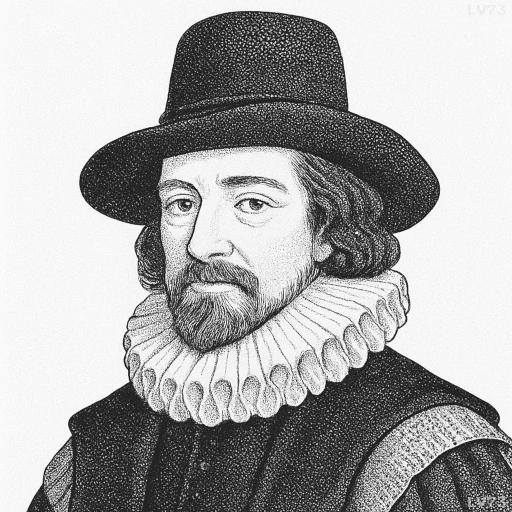“Small amounts of philosophy lead to atheism, but larger amounts bring us back to God.”

- January 22, 1561 – April 9, 1626
- Born in England
- Philosopher, theologian, jurist, politician, aristocrat
table of contents
Quote
“Small amounts of philosophy lead to atheism, but larger amounts bring us back to God.”
Explanation
In this quote, Francis Bacon presents a provocative view on the relationship between philosophy and faith. He suggests that shallow or partial engagement with philosophy can lead one to question or reject religious beliefs, possibly resulting in atheism. However, he argues that a deeper, more comprehensive understanding of philosophy, which explores the complexities of existence, morality, and the nature of the universe, ultimately brings one back to a belief in God. This idea reflects Bacon’s view that true philosophical inquiry does not reject faith but rather complements it by revealing the order and design of the universe.
Bacon was writing in an era where scientific and philosophical thought were rapidly evolving. During the Renaissance, thinkers like Bacon were exploring the natural world through reason and observation, and this new way of thinking often challenged traditional religious beliefs. However, Bacon, known for his contributions to the scientific method, believed that deeper reflection on nature’s complexity and order would lead people to see the hand of a higher power behind it all. He was not suggesting blind faith, but rather a reasoned approach to understanding the divine through philosophical reflection.
In the modern world, this quote still resonates, particularly in discussions about the relationship between science and religion. Many people today wrestle with the tension between scientific explanations of the universe and their religious beliefs. The idea that deeper philosophical or scientific exploration can lead one to a sense of the divine is evident in the experiences of many thinkers and scientists who, despite their scientific understanding, continue to hold spiritual or religious convictions. For example, figures like Albert Einstein often expressed a deep reverence for the mystery and order of the universe, seeing in it a reflection of something greater than human understanding. Bacon’s words suggest that both the pursuit of knowledge and a search for spiritual truth can coexist, leading to a more profound understanding of both.
Would you like to share your impressions or related stories about this quote in the comments section?

